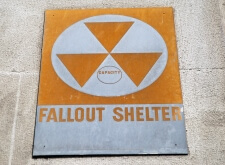In a scarcely credible development in the on-going nuclear / subsidy / cost row, Ecotricity, the independent green energy  supplier that for many years has benefitted from subsidy regimes in support of wind energy, is considering a legal challenge against the European Commission’s decision to approve the Hinkley Point C nuclear plant.
supplier that for many years has benefitted from subsidy regimes in support of wind energy, is considering a legal challenge against the European Commission’s decision to approve the Hinkley Point C nuclear plant.
Dale Vince, the founder of Ecotricity, fresh from legal spats with Tesla and Ovo Energy, said:
“This is a mad decision by Brussels and a patriotic issue for us. The financial support agreed for Hinkley would be an enormous burden for the country and there is the costs of decommissioning on top of that. Where is the money going to come from?”
Vince’s key concern appears to be the limitations of the government’s capability to maintain current subsidy levels for low carbon generators, such as Ecotricity, in the face of such apparent largesse on the nuclear industry.
Indeed Vince has expressed willingness to be an “interested party” in Austria’s claimed intent to challenge the decision to grant the subsidy in the European Court of Justice.
But Gary Smith, the GMB union’s National Officer for Energy, spoke to The Independent saying:
“Our view is that Austria’s legal challenge is anti-nuclear rhetoric that won’t stop this development. It’s not really even an anti-subsidy complaint, it’s anti-nuclear – if you look at Austria’s renewable energy projects they’re full of subsidies.”
Reiterating the point and responding to Vince’s threat Ed Davey, Secretary of State for Energy and Climate Change said:
“All low carbon [power] at the moment, whether its nuclear, carbon capture and storage, offshore wind etc. is getting support. The question is can we reduce that support as quickly as possible and that is what the electricity market reform is designed to do.
“Do I think it will go to zero [subsidies]? I don’t know, because I can’t tell the future. But what I do know is that, with the mechanism we’ve got, it will reduce the cost of supporting low-carbon, in all its different forms, to the lowest imaginable because we are bringing in competition in the market.
“We are in the early stages of decarbonisation and taking a low-carbon option off the table now doesn’t look terribly clever.”
Vince’s position has its supporters however and not only in Austria, with Paul Dorfman, Senior Research Associate at the Energy Institute at University College, London saying:
“We are profoundly disappointed that the outgoing European commission administration has decided to rush through this decision to approve state aid to Hinkley Point C without giving the new commission the opportunity to review and reflect on a decision which will set a significant precedent on energy and competition policy. That this decision has been taken in undue haste only strengthens the grounds for and likely success of a legal challenge.”
Many might not agree that what seems like an interminable wait for new generation capacity was taken in “undue haste”, the most worrying observation of Vince and Dorfman is the reliance of low carbon generation on subsidies of whatever shape or size.
